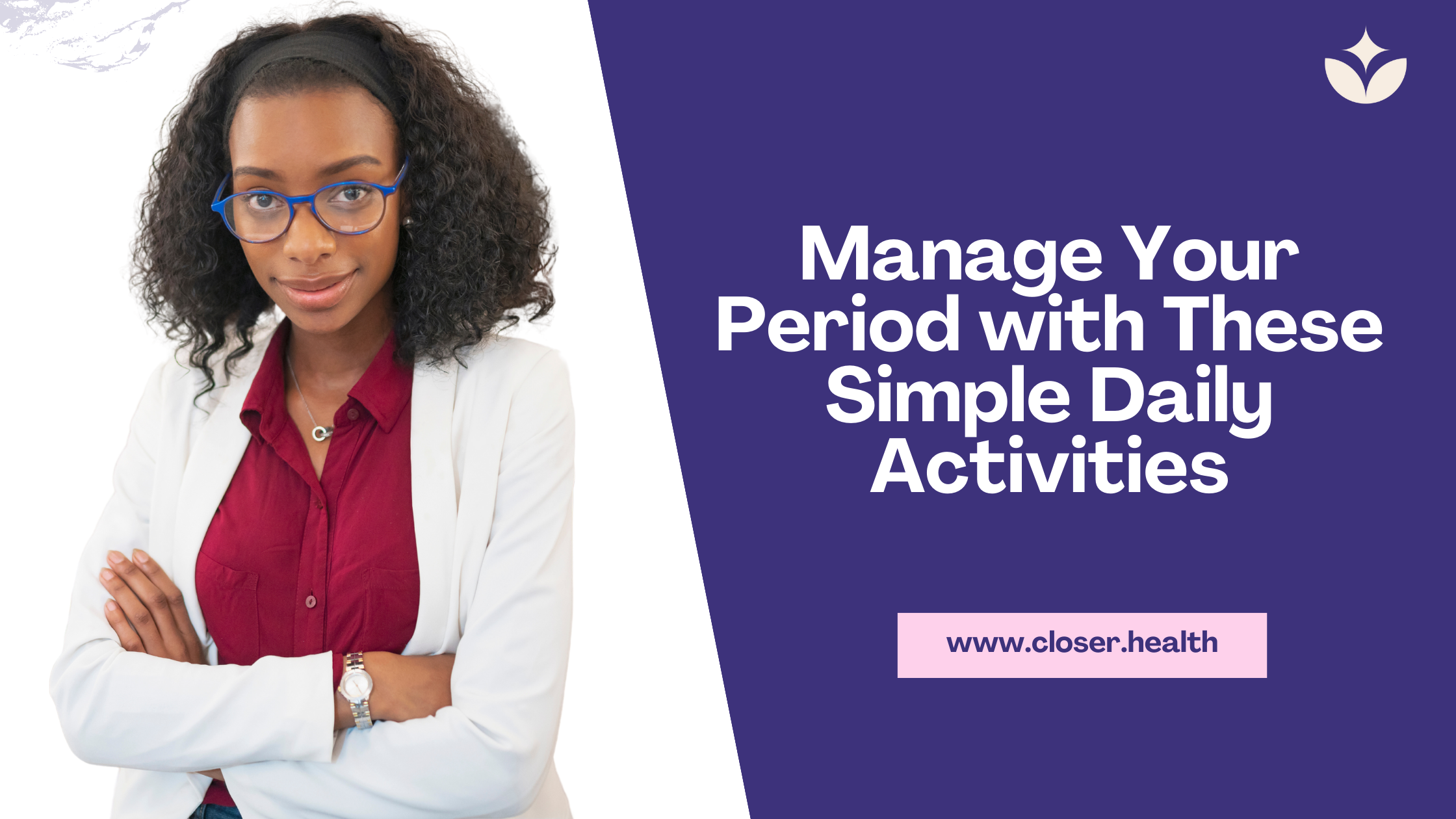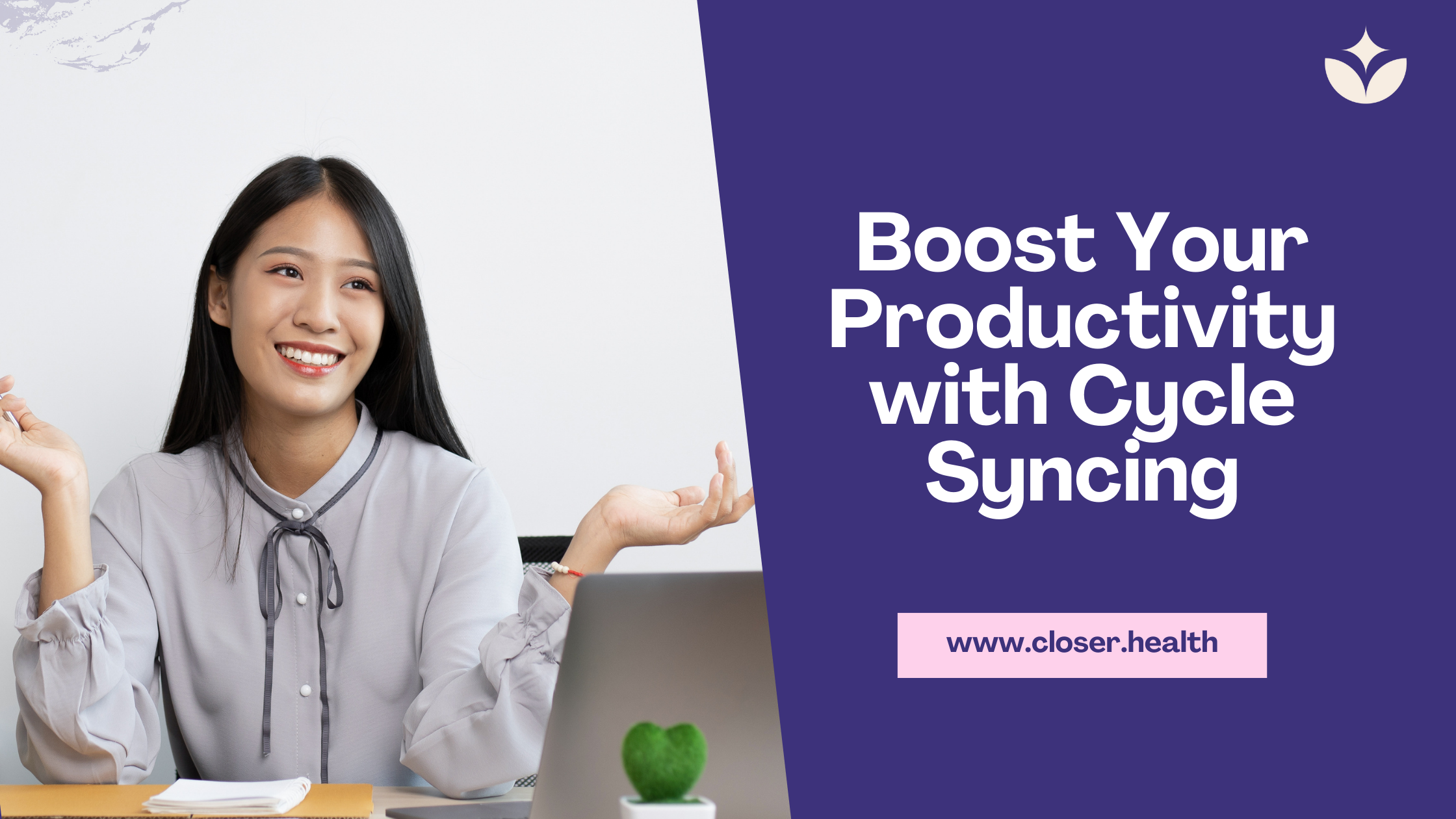Let’s talk about something we all know too well—our monthly flow. It’s that time of the month that brings along its fair share of discomfort, cravings, and mood swings. But guess what? We can actually take charge of our periods through some super simple daily activities. Yes, you heard me right! This article will give you the lowdown on how to manage your period like a pro with just a few tweaks to your daily routine. Ready to feel more in control? Let’s dive in!
Before we jump in, here’s what you’ll get from this article:
- The best foods to eat during your period
- Simple exercises to ease cramps and boost your mood
- Daily habits that support menstrual health
- Practical tips to stay comfortable and confident
How to Take Charge of Your Monthly Flow
Eat Right, Feel Right
When it comes to managing your period, what you eat can make a huge difference. Here are some period-friendly foods to incorporate into your daily diet:
- Leafy Greens: Spinach, kale, and other leafy greens are rich in iron, which can help combat period-related fatigue.
- Fruits and Veggies: These are packed with vitamins and minerals that help reduce bloating and keep your energy levels up.
- Whole Grains: Foods like oats, quinoa, and brown rice can help stabilize your blood sugar, preventing those dreaded mood swings.
- Dark Chocolate: A small piece of dark chocolate can boost your mood and provide a dose of magnesium, which helps relax muscles and ease cramps.
Move Your Body
Exercise might be the last thing on your mind when you’re on your period, but it can actually work wonders for your symptoms. Here’s how to get moving:
- Gentle Yoga: Poses like Child’s Pose, Cat-Cow, and Pigeon Pose can help alleviate cramps and reduce stress.
- Light Cardio: Activities like walking or light jogging increase blood flow and release endorphins, which are natural mood lifters.
- Strength Training: Lifting light weights can improve your overall energy and help reduce period pain over time.
Daily Habits for Menstrual Health
Small changes in your daily routine can make a big difference in how you feel during your period. Here are some habits to adopt:
- Stay Hydrated: Drinking plenty of water helps reduce bloating and keeps your energy levels stable.
- Get Enough Sleep: Aim for 7-9 hours of sleep to help your body recover and manage stress better.
- Track Your Cycle: Use a period tracker app (like Clue!) to keep tabs on your cycle. Knowing what to expect can help you prepare and manage symptoms more effectively.
- Practice Self-Care: Take time for activities that make you feel good, whether it’s reading a book, taking a bath, or practicing mindfulness.
Practical Tips for Comfort and Confidence
- Wear Comfortable Clothing: Opt for loose, breathable fabrics to stay comfortable throughout the day.
- Use Heat: A heating pad or hot water bottle can work wonders for cramps.
- Stay Organized: Keep a period kit with essentials like pads, tampons, pain relievers, and snacks to handle any situation.
Conclusion: Embrace Your Flow with Confidence
Taking charge of your monthly flow is all about understanding your body and making small, manageable changes to your daily routine. By eating the right foods, staying active, and adopting healthy habits, you can make your period a more positive experience. Remember, it’s all about what works best for you. Embrace these tips, and you’ll be on your way to feeling more empowered and in control every month.
So, next time Aunt Flo comes to visit, you’ll be ready to show her who’s boss!

FAQs
How can I reduce period cramps naturally?
- Incorporate gentle yoga, light cardio, and strength training into your routine. Eating foods rich in magnesium, like dark chocolate, can also help relax muscles.
What foods should I avoid during my period?
- Try to limit salty foods, caffeine, and sugary snacks, as they can increase bloating and energy crashes.
Is it okay to exercise during my period?
- Yes, light to moderate exercise can actually help alleviate period symptoms like cramps and mood swings.
How much water should I drink during my period?
- Aim to drink at least 8 glasses of water a day to stay hydrated and reduce bloating.
Can sleep affect my period symptoms?
- Absolutely. Getting 7-9 hours of sleep each night can help manage stress and improve your overall well-being during your period.
What are some good self-care practices during my period?
- Engaging in activities that you enjoy and that help you relax, such as reading, taking a warm bath, or practicing mindfulness, can be very beneficial.








